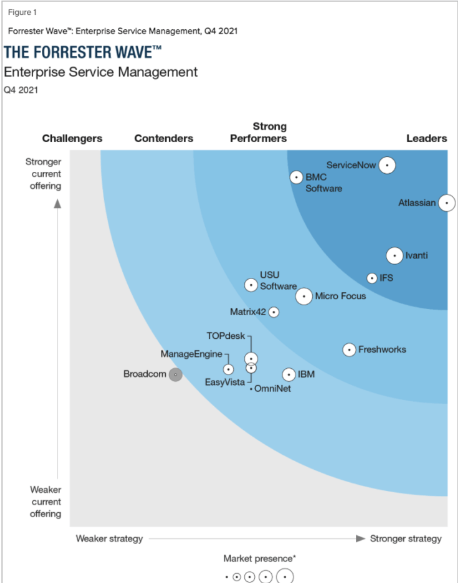As pressure for government spending grows, federal agencies are looking for more cost-effective ways to move to modern software platforms. Throughout government, the reliance on legacy software platforms is creating operational inefficiencies as well as other challenges in maintaining, supporting, and securing their IT environment.
Contrary to what you may expect, remaining on a legacy system isn’t a cost-effective solution. According to the Auditor-General of South Australia, three-quarters of its licensed applications are over a decade old across its top 18 organizations. These legacy applications total out to $18.9 million dollars a year for South Australia alone.
Australia has the opportunity to reap long-term savings by investing in an integrable service management solution that can scale with future needs with short-term returns from accelerated onboarding. Over the course of this blog, we’ll examine how some organizations have already found fast returns by modernizing their tools; such as defense contractor BAE Systems Australia as well as the USA’s Space Force and Defense Media Activity. We’ll also dive into the various uses of service management tools that aren’t strictly limited to the IT world which can further growth in other sectors as well.
Accelerating the onboarding process
After trudging for years through their convoluted and out-of-date service management solution, BAE Systems Australia, one of the continent’s largest defense contractors, sought swift change. BAE’s agents were constantly bogged down by a complicated ticketing system that wouldn’t look out of place as a vaporwave background, all while their customers were witness to a portal that hadn’t evolved much since its development in 2007. And the worst part was that this legacy software was costing BAE over $85,000 per year in licensing fees.
BAE knew it was time for a change and soon found Jira Service Management their best option due to its customizable nature, automation, and unifying features. In just three weeks BAE was able to roll out Jira Service Management across IT, HR, and business improvement departments – but that’s not where their story ends. Since BAE no longer has to pay exorbitant annual licensing fees, and also doesn’t need to increase headcount due to Atlassian user-friendly design, BAE’s savings have become astronomical alongside a more innovative workforce with an improved daily workflow.
“Jira Service Management is saving BAE Systems $600,000 this year and will save our company $1.62M over the next five years.”
Greg Warner, Stream Lead of Information Systems
A faster way of delivering value
When the United States established its sixth military branch, Space Force, in 2019 it inherited the Department of Defense’s (DoD) legacy service management tools and processes. These legacy tools were ideal at first as they initially met the very precise security requirements set by the DoD; however, due to the rare and complex nature of a newly formed military branch that heavily revolves around technology, ever-evolving needs made scaling the organization from its infancy far more difficult. Space Force’s tools needed customization, and unfortunately, the scope of that process could have taken as long as five to eight years to complete.
The need to scale to unforeseen challenges while keeping budget in mind, led Space Force to a new solution proposed by Contegix’s Vice President Shaun Jones, leverage:
- Jira Software for ticketing
- Confluence for knowledge management
- Jira Service Management for resolving incidents quickly
This reliable, low maintenance option would also meet the DoD’s incredibly strict security requirements – and in the end, would only take six months to launch.
Transforming software delivery times from years to minutes will require significant change to our processes, policies, workforce, and technology…In this era of competition and race for digital dominance, we cannot settle for incremental change. Since adopting Atlassian’s toolbox, one Space Force squadron alone has saved 120 hours per week while the rest of the branch has experienced a 70% increase in launch tempo.”
US Space Force’s Software Modernisation Strategy
Modern challenges require modern solutions
The USA’s Defense Media Activity (DMA) agency uses an array of platforms to connect American forces through news, information, and entertainment; but when looking to evolve its offerings through a new Public Web program, it found that the project came to a halt due to the limitations of its legacy service management tools licensed at the time. The inability to integrate with IT operations and development teams alongside an outdated help desk raised the concern that it was time to upgrade for a modern, integrable toolset.
Within only five weeks, the DMA was able to implement Jira Software, Jira Service Management (at the time known as Jira Service Desk), and Confluence while meeting US military-grade security requirements. This upgrade increased productivity by 39% while boosting customer satisfaction by 10%.
The difference is amazing, and our productivity has skyrocketed. Everything now can be visualised, racked, and stacked, and I know what everyone is working on at a glance”.
Lisa Benito, CIO & Director of Technical Services, Defense Media Activity
Harnessing Enterprise Service Management (ESM)
Although it’s categorized as an ITSM, Atlassian’s Jira Service Management isn’t strictly an IT service management tool. By extending its capabilities beyond IT, Jira Service Management offers Enterprise Service Management (ESM) to teams in HR, facilities, marketing, finance, and sales via a user-friendly interface while remaining both highly customizable and integrable.
“Launch providers don’t have to go through the whole engineering process and then wait six months and pay $50,000 to get what they want. They can just go do it themselves in half an hour.”
Shaun Jones, Vice President, Contegix
By using Jira Service Management throughout your organization, employees from admin to C-level are empowered through self-service portals and service desks to help bring digital transformation. Enterprise-wide visibility untangles silos while automation handles tedious repetitive work which allows employees across departments to better engage in more future-thinking and mission critical tasks. To learn more about how to deploy service management beyond your IT teams, check out Atlassian’s complete guide to Enterprise Service Management.
According to the Forrester Wave report on Enterprise Service Management Q4 2021, Atlassian has been named a leader in ITSM platforms supporting the process of ESM. Atlassian’s strategy relies on staying innovative and future flexible while keeping the needs of ESM-enabled teams top of mind. By not straying away from distributed workforce models, Atlassian is able to stay ahead in this field.

Introducing ITIL 4
Initially a set of processes developed by the British government circa 1980s, ITIL has evolved over its handful of incarnations to become a leading method of aligning IT services with business strategy. Since its introduction in 2019, ITIL 4 has helped evolve Jira Service Management’s framework to embrace agile and DevOps. ITIL 4 helps business leaders assess their organization holistically to operate flexibly while delivering best in class service across teams. By leveraging ITIL 4 through Jira Service Management, government agencies can better work to simplify their operations while focusing on value keeping culture, business goals, and stakeholders top of mind. Through ITIL 4, managers can avoid siloes by ridding their teams of rigid processes and putting greater importance into people and culture.
The future of service management
Due to the antiquated design of legacy service management tools, many organizations have been seeking out a modern solution that’s transparent about both investment and returns. Over 45,000 customers including Lufthansa, Sony Music Publishing, and The Very Group – to name just a few – have been leveraging Jira Service Management for its continuously evolving yet accessible features to help customers experience service management at scale. From incident management, asset management, service request management, to connecting development and operations teams, Jira Service Management continues to redefine the ITSM.
If you would like to experience the future of service management without commitment (seriously, no credit card needed), make sure to take advantage of Atlassian’s free trial offer for Jira Service Management to experience a modern approach to service management across teams.
For a deeper dive into what industry analysts are saying about Jira Service Management, check out the report Atlassian named a Leader in the 2023 Gartner® Magic Quadrant ™ for DevOps Platforms and learn how to unite engineering, product teams, ITPOs, and business team on one cloud-based DevOps platform.

